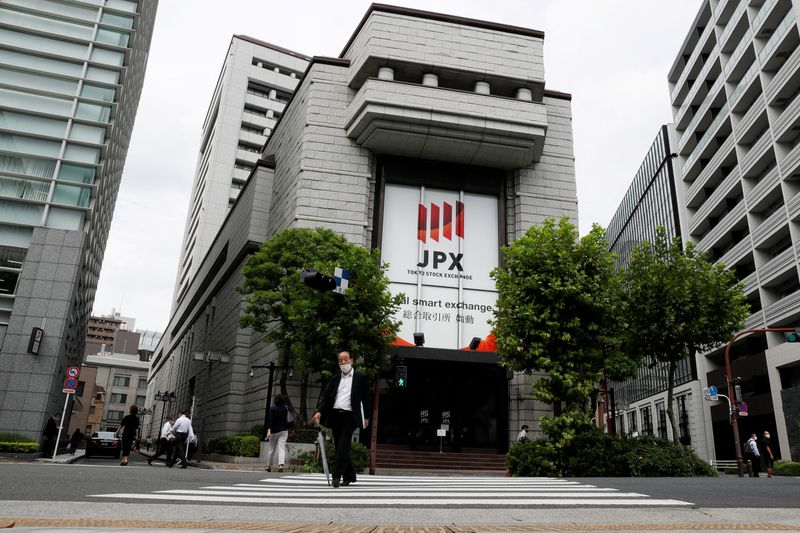By Sinéad Carew
NEW YORK (Reuters) - Stock indexes advanced on Thursday but finished below their session highs while the dollar declined as investors turned their focus to upcoming inflation data and the outlook for interest rate hikes.
Longer-dated U.S. Treasury yields fell ahead of personal consumption expenditures (PCE) data due out Friday. Economists polled by Reuters expect core prices rose by 0.4% in February and posted an annual increase of 4.7%.
The U.S. dollar slipped to a one-week low against the euro as German inflation data helped lift the common currency. And oil prices rose more than 1% on lower U.S. crude stockpiles and an export halt from Iraq's Kurdistan region, which offset pressure from a smaller-than-expected cut to Russian supplies.
Thursday's signs of risk appetite among investors stemmed from hopes that bank turmoil has been contained as well as bets that central banks around the world are near the end of their interest rate hiking cycles, according to Jeff Kleintop, chief global investment strategist at Charles Schwab (NYSE:SCHW).
But some investors were concerned by hawkish comments from Federal Reserve officials on Thursday as they braced for Friday's key economic data as well as potential volatility from traders' end-of-quarter efforts to square up positions.
"Traders are gearing up for what could be a more volatile day tomorrow and not making any big bets," said Leo Grohowski, chief investment officer at BNY Mellon Wealth Management.
The collapse of two U.S. banks and the rescue of a major European bank had led to bets in recent weeks that the Fed might pause rate hikes to stave off a broader crisis.
However, Minneapolis Federal Reserve President Neel Kashkari said on Thursday that the central bank has "more work to do" to lower inflation, and Boston Federal Reserve President Susan Collins said it seems likely the Fed will hike rates one more time this year.
"The Fed and inflation are back in focus," said Grohowski. "They're all singing basically from the same song sheet that inflation is enemy number one and there's more work to be done."
On Wall Street, stocks were boosted by gains in technology-related shares, but regional bank shares fell after the Biden administration proposed stronger measures to help reduce risk.
The Dow Jones Industrial Average rose 141.43 points, or 0.43%, to 32,859.03; the S&P 500 gained 23.02 points, or 0.57%, to 4,050.83 and the Nasdaq Composite added 87.24 points, or 0.73%, to 12,013.47.
MSCI's gauge of stocks across the globe closed up 0.72% while emerging market stocks rose 0.67%.
In currencies, the dollar index, which measures the greenback against a basket of major currencies, fell 0.477%, with the euro up 0.57% to $1.0905.
The Japanese yen strengthened 0.19% versus the greenback at 132.61 per dollar, while Sterling was last trading at $1.239, up 0.64% on the day.
In U.S. Treasuries, benchmark 10-year notes were down 1.7 basis points to 3.549%, from 3.566% late on Wednesday. The 30-year bond was last down 3.8 basis points to yield 3.74%, from 3.778%, but the 2-year note was up 3.1 basis points to yield 4.1113%.
In commodities, U.S. crude settled up 1.92% at $74.37 per barrel and Brent finished at $79.27, up 1.25% on the day.
Gold prices gained with a weaker dollar and lower bond yields driving demand for the precious metal, while investors waited for U.S. inflation data to gauge the Fed's next move.
Spot gold added 0.9% to $1,981.62 an ounce. U.S. gold futures gained 0.74% to $1,981.50 an ounce.
